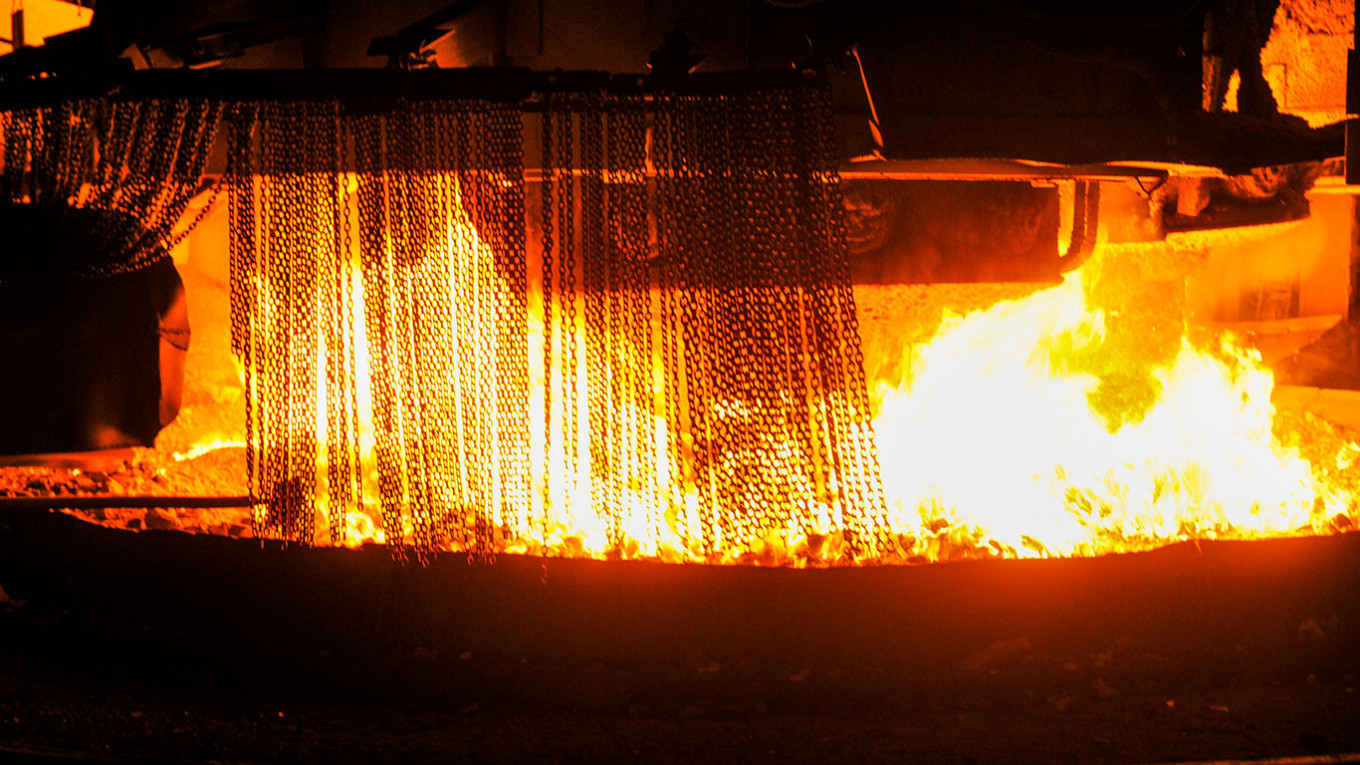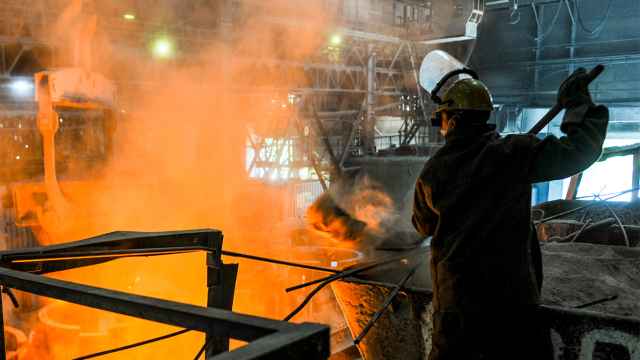Russia’s largest ferroalloy producer will shift to a four-day workweek for its administrative staff starting Sept. 1, the Kommersant business daily reported Monday, as the country’s metallurgical industry continues to grapple with mounting financial pressures.
The Chelyabinsk Electrometallurgical Plant (ChEMK), which produces 80% of the nation’s ferroalloy used in steelmaking, attributed the move to significant fluctuations in exchange rates, “adverse market conditions” for ferroalloys and a notable reduction in demand from industrial clients.
The company said these factors have forced the launch of an “anti-crisis program.”
“From September 1, all administrative employees in structural divisions will transition to a reduced schedule that will remain in effect through the end of 2025. There are no planned layoffs,” the plant said in a press statement.
The updated workweek will be implemented for 1,200 employees.
Company officials said that a return to the standard schedule is possible should market conditions and currency fluctuations stabilize.
ChEMK was nationalized in 2024 after a court in the Sverdlovsk region ordered the transfer of shares in ChEMK, Serov Ferroalloy Plant and Kuznetsk Ferroalloys — companies that made up the ChEMK Group — to the Russian state.
The Prosecutor General’s Office accused their previous owners, the Antipov family, of illegally privatizing the assets and exporting goods to so-called “unfriendly countries,” a move deemed harmful to national interests.
The company had been controlled by JSC Etalon, a real estate firm tied to billionaire Yuri Antipov, who was later arrested for fraud following the nationalization.
Administration of the assets was transferred to the Federal Property Management Agency (Rosimushchestvo).
According to SPARK-Interfax, ChEMK generated revenue of 81.5 billion rubles ($1 billion) in 2023 but ended the year with a net loss of 519.4 million rubles ($7 million).
Russia’s metallurgical industry has been hit hard by intensifying international sanctions, the loss of export markets and the Central Bank’s 20% key interest rate.
Data from the Yakov and Partners consulting group indicates that Russia's steel exports declined by 11 million tons between 2021 and 2023. Domestic demand dropped 6% in 2024, and the Russian Steel Association warns it could fall by another 5% in 2025.
Steel production declined by 8.6% in 2024, the steepest decline among the world’s top steel-producing nations, and dropped an additional 5.2% between January and May 2025, data from the World Steel Association shows.
Alexander Shevelev, CEO of Russian steel giant Severstal, estimated that domestic steel demand may fall to 39 million tons, down from the current 43-45 million tons range, by the end of this year.
Industry and Trade Minister Anton Alikhanov said in June that the government is working on tax relief measures for the sector. One proposal would raise the price threshold for the excise tax on liquid steel — currently 30,000 rubles ($380) per ton — starting in 2026.
Metallurgy remains a critical component of Russia’s economy, employing over 600,000 people and accounting for 10% of the country’s export revenues.
A Message from The Moscow Times:
Dear readers,
We are facing unprecedented challenges. Russia's Prosecutor General's Office has designated The Moscow Times as an "undesirable" organization, criminalizing our work and putting our staff at risk of prosecution. This follows our earlier unjust labeling as a "foreign agent."
These actions are direct attempts to silence independent journalism in Russia. The authorities claim our work "discredits the decisions of the Russian leadership." We see things differently: we strive to provide accurate, unbiased reporting on Russia.
We, the journalists of The Moscow Times, refuse to be silenced. But to continue our work, we need your help.
Your support, no matter how small, makes a world of difference. If you can, please support us monthly starting from just $2. It's quick to set up, and every contribution makes a significant impact.
By supporting The Moscow Times, you're defending open, independent journalism in the face of repression. Thank you for standing with us.
Remind me later.






